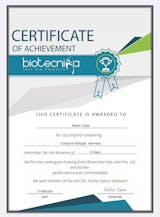
Coding For Biologist Hands-on Training Program With 3, 6 & 12 Months Project Work in Python, R, BioPython & CADD Biological Data Analysis
BECOME A BIO-CODER
CODING FOR BIOLOGISTS - A Biotecnika Initiative
Calling All Aspiring Biologists to Join Our Hands-on Training Program in Python, Biopython, R & CADD, and how To Use Them in Biological Data Analysis
Learn How To Develop Biotech Software using Coding During Project Work
In the AI era, coding turns a biologist into a bio-innovator.
+ Work On Real Time Projects For 3 Months, 6 & 12 Months
Bioinformatics Is The Present & Future, and Coding Is Your Key to Unlocking Its Boundless Potential
Session Starts From - 30th JAN 2026
Dive into the World of Coding - Join Today!
Welcome to the Coding For Biologist Hands-on Training program in Python, R, Bio Python, and CADD Biological Data Analysis! In the rapidly evolving field of biology and life sciences, data-driven approaches are becoming increasingly critical for research, analysis, and decision-making. This comprehensive 15-day Training is designed to equip aspiring biologists, researchers, and life science enthusiasts with the essential coding skills necessary to harness the power of data analysis and computational biology.
Course Details:
- Start Date: 30th JAN 2026
- Duration: 15 Days Training With 3,6 & 12 Months Project Work
- Mode: Online Via Zoom
- Timings: 8:30 to 9:30 PM IST
Eligibility:
- B.Sc., M.Sc., B.Tech., M.Tech., B.Pharm, M.Pharm, Life Sciences, Ph.D. and Post Doc Students are welcome, who want to learn coding.
- Individuals with a strong interest in bioinformatics and a basic understanding of biology are encouraged to apply.
Why Life Science Candidates Must Know R, Python & BioPython, CADD:
-
R and Python: R and Python are two of the most widely used programming languages in bioinformatics and biological data analysis. R is known for its powerful statistical analysis capabilities, while Python is versatile and popular for its simplicity. Knowing both equips you to work with a broad range of biological data effectively.
-
BioPython: BioPython is a specialized library for biological data analysis, providing tools and libraries for sequence analysis, phylogenetics, structural biology, and more. It streamlines common biological data manipulation tasks.
-
CADD (Computer-Aided Drug Design): CADD plays a crucial role in drug discovery and development. Understanding CADD techniques is invaluable for researchers involved in pharmacology and drug-related research in the life sciences.
Why Coding is Essential for Biologists: Its Advantages:
In the era of big data, biologists can significantly benefit from incorporating coding into their skill set. Here are some of the key advantages:
-
Efficient Data Handling: With the immense volume of biological data generated daily, coding skills enable you to manage, process, and analyze data much more efficiently.
-
Customized Analysis: Coding allows you to tailor your analytical tools to meet the specific needs of your research, providing a level of customization that pre-built software may not offer.
-
Reproducibility: Coding ensures that your research is reproducible, transparent, and shareable with the scientific community, enhancing the credibility of your work.
-
Automation: Repetitive tasks can be automated, saving time and reducing the risk of errors in data analysis.
-
Interdisciplinary Collaboration: Coding skills enable better collaboration between biologists, computer scientists, and statisticians, fostering interdisciplinary research.
DOWNLOAD BROCHURE - KNOW MORE ABOUT YOUR INSTRUCTORS
Training Curriculum
Week 1: Introduction to Biological Data Analysis
Day 1: Getting Started with Python and R
- Python vs. R for Biological Data Analysis
- Installing Python, R, and Required Libraries
Day 2: Data Import and Manipulation
- Working with Biological Data Formats
- Basic Data Manipulation with Python and R
Day 3: Data Visualization
- Introduction to Data Visualization
- Creating Basic Plots with Matplotlib (Python) and ggplot2 (R)
Day 4: Exploratory Data Analysis (EDA)
- Understanding Your Biological Data
- EDA Techniques in Python and R
Day 5: Introduction to Bio Python
- What is Bio Python?
- Basic Bio Python Functions for Sequence Analysis
Week 2: Molecular Data Analysis
Day 6: Sequence Alignment
- Introduction to Sequence Alignment
- Pairwise Sequence Alignment with Bio Python
Day 7: Multiple Sequence Alignment
- Multiple Sequence Alignment with Bio Python
- Sequence Alignment Tools and Techniques
Day 8: Phylogenetic Analysis
- Building Phylogenetic Trees
- Tree Visualization and Interpretation
Day 9: Sequence Feature Analysis
- Identifying and Annotating Sequence Features
- Sequence Motif Search with Bio Python
Day 10: Protein Structure Analysis
- Introduction to Protein Structure Analysis
- Using Bio Python for Protein Structure Data
Week 3: Clinical Data Analysis
Day 11: Clinical Data Preprocessing
- Cleaning and Organizing Clinical Data
- Handling Missing Data
Day 12: Survival Analysis
- Introduction to Survival Analysis
- Kaplan-Meier Estimator and Cox Proportional Hazards Model in R
Day 13: File Parsing and Data Retrieval
- Reading and Writing FASTA Files
- Parsing GenBank Files
Day 14: CADD data analysis using Python and BioPython
- Working with molecular structures and visualization for drug designing
- Analyzing drug bioactivity data to screen potential drug candidates
Day 15: Project and Presentation
- Apply your knowledge in a real research project.
- Showcase your skills and insights gained during the training.
- Present your findings and contributions to the field.
Project Work Opportunities
In addition to the 15-day training program, participants have the option to engage in real-time projects for 3 or 6 months. Below are the available project topics along with the respective project guides:
-
Genomic Data Visualization Tool
Develop an integrated bioinformatics tool for visualizing and exploring genomic data, including gene expression profiles with its mutations.
Project Guide: Dr. Nilofer Shaikh
Duration: 6 months -
3D Protein Structure and Drug Visualizer and Analysis Tool
Develop an interactive platform for 3D protein structure visualization, allowing detailed analysis of protein-ligand interactions.
Project Guide: Prodyot Banerjee
Duration: 12 months -
Microbiome Diversity and Functional Analysis Tool
Build a comprehensive tool and web interface for analyzing microbiome datasets, providing rich visualizations of microbial diversity, composition, and functional capabilities.
Project Guide: Dr. Elamathi Natarajan
Duration: 6 months -
CRISPR-Cas9 Target Site Analysis
Design a bioinformatics tool with an intuitive web interface to predict optimal CRISPR-Cas9 target sites in genomic sequences for gene editing research.
Project Guide: Dr. Elamathi Natarajan
Duration: 6 months -
Cancer Mutation Signature Analysis App
Develop a user-friendly software tool to analyze mutational signatures in cancer genomics, uncovering patterns that can guide therapeutic strategies.
Project Guide: Dr. Nilofer Shaikh
Duration: 6 months -
Gene Expression Analysis Using Python
Project Guide: Dr. Nilofer Shaikh -
Identification of Drug-like Properties, and Molecular Interaction Analysis of Phytochemicals Against Cancer Targets
Project Guide: Dr. Elamathi -
To Identify Novel Mutations in Neurological Disorders Using AI/ML Based Databases
Project Guide: Prodyot Banerjee -
Model Development for the Screening of Log P Value Using Machine Learning Based Algorithms
Project Guide: Dr. Elamathi -
Virtual Screening of Novel Druggable Compounds Using AI/ML Based Tools
Project Guide: Prodyot Banerjee -
Principal Component Analysis-Based Unsupervised Feature Extraction Applied to In-Silico Drug Discovery
Project Guide: Dr. Elamathi -
Comparative Analysis of Data Mining Tools and Classification Techniques Using WEKA in Medical Bioinformatics
Project Guide: Dr. Elamathi -
Pharmacokinetic/Pharmacodynamic Studies of the Druggable Compounds and Identifying the Pockets and Cavities of Protein
Project Guide: Prodyot Banerjee -
Identification and Screening of Antiviral Compounds in Terms of Their ADME/T Properties
Project Guide: Dr. Elamathi -
To Carry Out Multiple Ligand Docking Studies Using the Screened Druggable Compounds and to Present the Docked Complex as per Publication Standards Using Visualization Tools
Project Guide: Prodyot Banerjee -
Gene Function Prediction from DNA Coding Sequence Using AI/ML Classifiers and Databases
Project Guide: Prodyot Banerjee -
Feature Selection and Clustering of Gene Expression Profiles Using Biological Knowledge
Project Guide: Dr. Elamathi -
To Design Mutant Protein Structure Model Using AlphaFold and to Identify the Protein’s Stability
Project Guide: Prodyot Banerjee
Why Attend This Training:
This training offers a unique opportunity for life science candidates to gain hands-on experience in coding and biological data analysis. By participating in this program, you will:
-
Build In-Demand Skills: Learn the coding languages and tools that are in high demand in the life sciences and bioinformatics fields.
-
Advance Your Career: Acquire skills that will make you more competitive in the job market and open up a wide range of career opportunities in academia, research, and industry.
- Work on Real Time Projects & Publish papers
-
Practical Experience: Gain practical experience in coding and data analysis through real-world examples and projects.
-
Networking: Connect with experts and peers in the field, building valuable connections for your future endeavors.
-
Apply Knowledge: The program culminates in a project and presentation, allowing you to apply your newfound skills to real-life biological data analysis challenges.
Join us for this transformative journey into the world of biological data analysis. Let coding be your gateway to unraveling the mysteries of life sciences and enhancing your impact in the field. Don't miss this opportunity to take your career to the next level. Register now and embark on this exciting educational journey with us!
Frequently asked questions on Coding For Biologist Training
Are these going to be live sessions?
The Coding For Biologist Hands-on Training will combine live interactive sessions,and assignments. However, our expert will be available to guide you throughout the course.
What If I miss a session?
The recording of the sessions will be available for five days post-completion of the Training. So you can go back and refer to the recordings, but make sure you do not miss the live sessions and take maximum benefit from it.
Will I need to install any software?
The course does not require any additional software. However, any requirement arises, the instructor will inform it before the sessions.
How to get the hard copy certificate?
To avail of the hard copy certificate, the candidate should complete the assignments. Upon submission of the same, a hard copy certificate will be sent to your address.
Whom do I contact for any further queries or technical difficulties?
Having any trouble? Get in touch with our team. Click on that Chat thingy or write to us cst@biotecnika.org or info@biotecnika.org.

